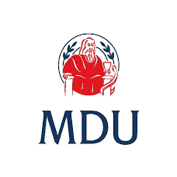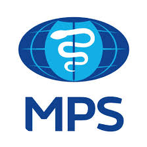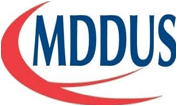General Medical Council

The GMC is an independent organisation whose primary role is to protect patients and regulate and improve medical education and practice across the UK.
They are responsible for setting the standards required by doctors and make the decision as to which doctors qualify to work in the UK.
If it is felt that a patient’s safety is at risk, or there is a concern regarding a particular doctor, it is the GMC’s responsibility to investigate and take action accordingly.
In order for a doctor to practice medicine in the UK, they must be registered with a licence to practice with the GMC. You can check if you, or another doctor, is on the register and licensed to practise using the online list of registered medical practitioners.
It is not the purpose of this resource hub to describe the necessary steps needed to apply for GMC registration.
It may be of interest to note that all doctors must pay a fee to register with the GMC and then an annual retention fee to remain on the register. Details of how much you will be expected to pay can be found on the GMC website.
Good Medical Practice
A core guidance for all doctors working in the UK, regardless of stage of training or level of seniority, is Good Medical Practice (GMP). GMP requires doctors to maintain their knowledge and skills throughout their working life and to maintain and improve their performance. All doctors must be familiar with, and follow, GMP.
Good Medical Practice is available online, in PDF and hard copy; in English and Welsh.
Explanatory guidance that shows how the principles described in GMP apply in real life is also available online. Interactive learning materials, decision tools and a range of case scenarios relating to GMP can also be accessed at ‘Good Medical Practice in action’.
In order to gain insight into the level of your knowledge and understanding of how the GMP standards apply to your daily practice, we would recommend using the Welcome to UK Practice self-assessment tool. The results of this tool can be used as part of your continued learning and professional development and may also help you decide whether to attend further courses and workshops in order to improve any identified areas of weakness.
Medical indemnity
As a doctor working in the UK, it is a legal requirement that you hold adequate and appropriate indemnity cover.
The NHS Litigation Authority provides indemnity to hospital and community health employees in respect of clinical negligence claims arising from contracted NHS duties. It does not, however, provide indemnity for disciplinary issues or referrals to the GMC. Therefore, both the BMA and health departments advise that all doctors employed by the NHS retain membership with a defence body and/or take out personal indemnity insurance and ensure that the cover opted for is sufficient for the clinical activities undertaken.
GP contractors, locum GPs and salaried GPs employed by practices are not covered by the NHS scheme and should seek personal medical indemnity cover. Similarly, doctors undertaking private work or work in independent hospitals are responsible for arranging their own liability insurance with a medical defence body of their choice.
Medical Defence Organisations (MDOs) are non-profit making organisations that provide members with 24-hour access to advice and assistance on medico-legal issues arising from clinical practice which fall outside the scope of indemnity provided by NHS bodies. They also provide educational tools and publications on medico-legal issues that arise for doctors in practise.
There are 3 MDOs: Medical Defence Union (MDU), Medical Protection Society (MPS) and Medical and Dental Defence Union of Scotland (MDDUS).



Each MDO offers different membership benefits and therefore it is important to consider each one carefully before making a decision.
Portfolio
As a doctor in training, whether Foundation training, specialty training or General Practice (GP) training, you will be required to complete a portfolio. The portfolio is typically an electronic portfolio, or ePortfolio, to which you will be provided with a username and password to access upon becoming a member of the College aligned to the specialty.
Every specialty will have a slightly different ePortfolio affording to the differing curriculum requirements of each training programme.
Foundation Training – doctors completing Foundation training will be expected to complete the Horus ePortfolio. Further explanation and guidance surrounding the use of this ePortfolio will be provided in the Trust induction.
Specialty and GP Training – as previously mentioned, every specialty has its own ePortfolio that is expected to be completed by their trainees. Again, details of this ePortfolio will be provided upon induction to the training programme.
Non-training or Trust doctors – unfortunately, doctors who are not on a training programme do not have access to a specific ePortfolio. However, the BMJ has the BMJ Portfolio, which is a free, online portfolio tool that can be helpful for planning and recording continuing medical education.
Supervisors
As a doctor in training you will be allocated a Clinical Supervisor (CS) for each post and an Educational Supervisor (ES) for the entirety of your training programme.
You will be expected to have regular discussions with your supervisors regarding your progress and outstanding learning needs. The discussions should also include summarising and reflecting on strengths and weaknesses, and significant achievements or difficulties, which will usually encompass information on significant events, and complaints and compliments.
Assessments, appraisals and revalidation
Working hours and contracts
The European Working Time Directive (EWTD) was implemented in the UK in 2009 and limits the working hours of doctors in training to a maximum of 48 hours per week (averaged over a six-month period). It also describes the minimum requirements required for rest periods and annual leave.
Currently, doctors in training (under the Junior Doctor Contract 2016) are contracted to work 40 hours per week (unless working part time) as well as any out of hours (OOH)/on-call shifts. The contract applies to all doctors below consultant/GP level.
It is not the purpose of this resource hub to provide detail about the Junior Doctor Contract, however, more information can be found online.
If you have any questions or concerns about your contract, or your pay, it is advised that you contact your employer in the first instance. You can find the details of your employer in the top left hand corner on the front of your pay slip. Alternatively, if you are a member of the BMA, you can contact them for further assistance and advice.
The BMA also provide a free contract checking service for its members.
Resettlement Programme for Overseas Doctors and other healthcare professionals (REPOD)
The skills of refugee doctors and other healthcare professionals in the UK, and in particular in the North East and north Cumbria, are not being utilised and, therefore, going to waste. It is also extremely difficult for these colleagues to navigate the system, which is preventing them from practicing in the UK.
In recognition of this untapped resource, HEE NE developed and implemented a joint project between North Tees and Hartlepool NHS Foundation Trust (led by Professor Jane Metcalf) and Investing in People and Culture (IPC - a charity based in Middlesbrough) with the aim of supporting refugee and asylum seeker healthcare professionals returning to practice. This programme is called REPOD. It is one of several programmes running in the UK – including ‘Building Bridges’ in London and ‘REACHE North West’.
 IPC is a registered charity (no. 1160482) operating across the North East to facilitate the social and economic inclusion of people seeking asylum, refugees and emerging Black and Minority Ethnic (BME) communities.
IPC is a registered charity (no. 1160482) operating across the North East to facilitate the social and economic inclusion of people seeking asylum, refugees and emerging Black and Minority Ethnic (BME) communities.
The REPOD programme consists of 3 phases:
1. Obtaining IELTS (International English Language Testing System)
2. Preparing for PLAB (Professional and Linguistic Assessments Board) and Clinical Placements
3. Support in applying for NHS jobs
As a result of the involvement of IPC and HEE NE, the programme is able to support funding participant’s travel, childcare, IELTS and PLAB courses and accommodation, DBC checks, GMC registration and specialty registration. Participants are also offered mentoring, clinical teaching and access to other support.
Bini Araia (founding trustee of IPC) explained that one participant of the programme, who has just achieved full GMC registration and is expecting to be appointed to a Trust Doctor post at Foundation level very shortly, had been known to IPC for over 7 years and had 'lost all hope'. He was 'volunteering at the charity, bagging up food...and delivering pizza to earn a living'. Bini explained that 'REPOD saved his (the participants) career...I thank you all for your continued support, and particularly Professor Metcalf for her incredible leadership and commitment to the programme'.
For further information, or to register your interest in such a programme, please contact IPC directly via biniaraia@gmail.com.
Go to Top